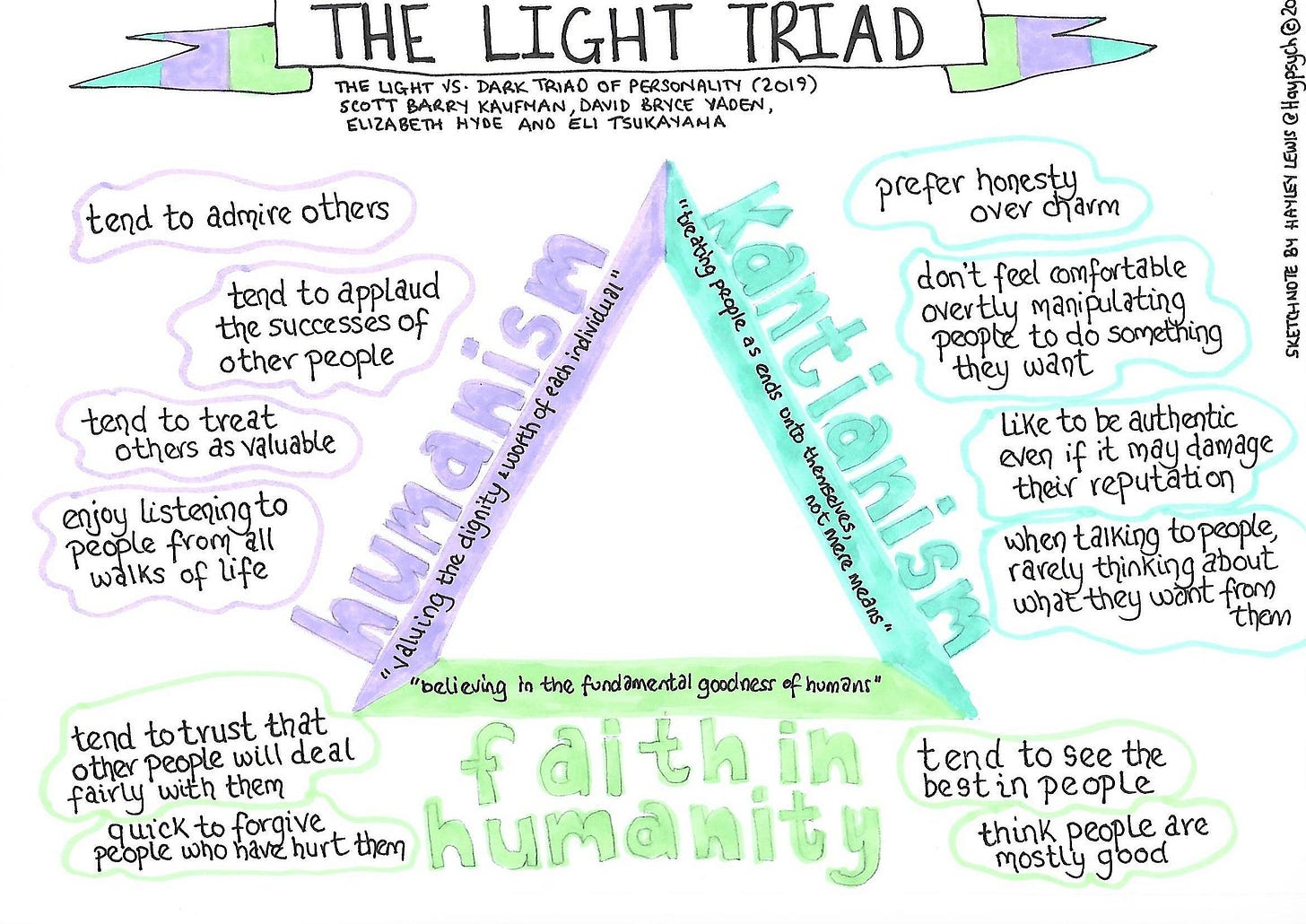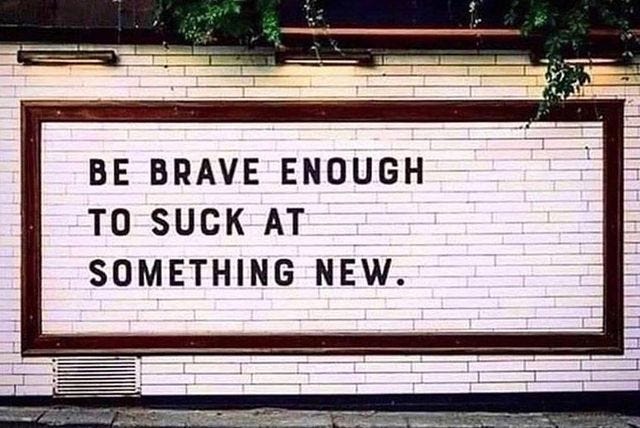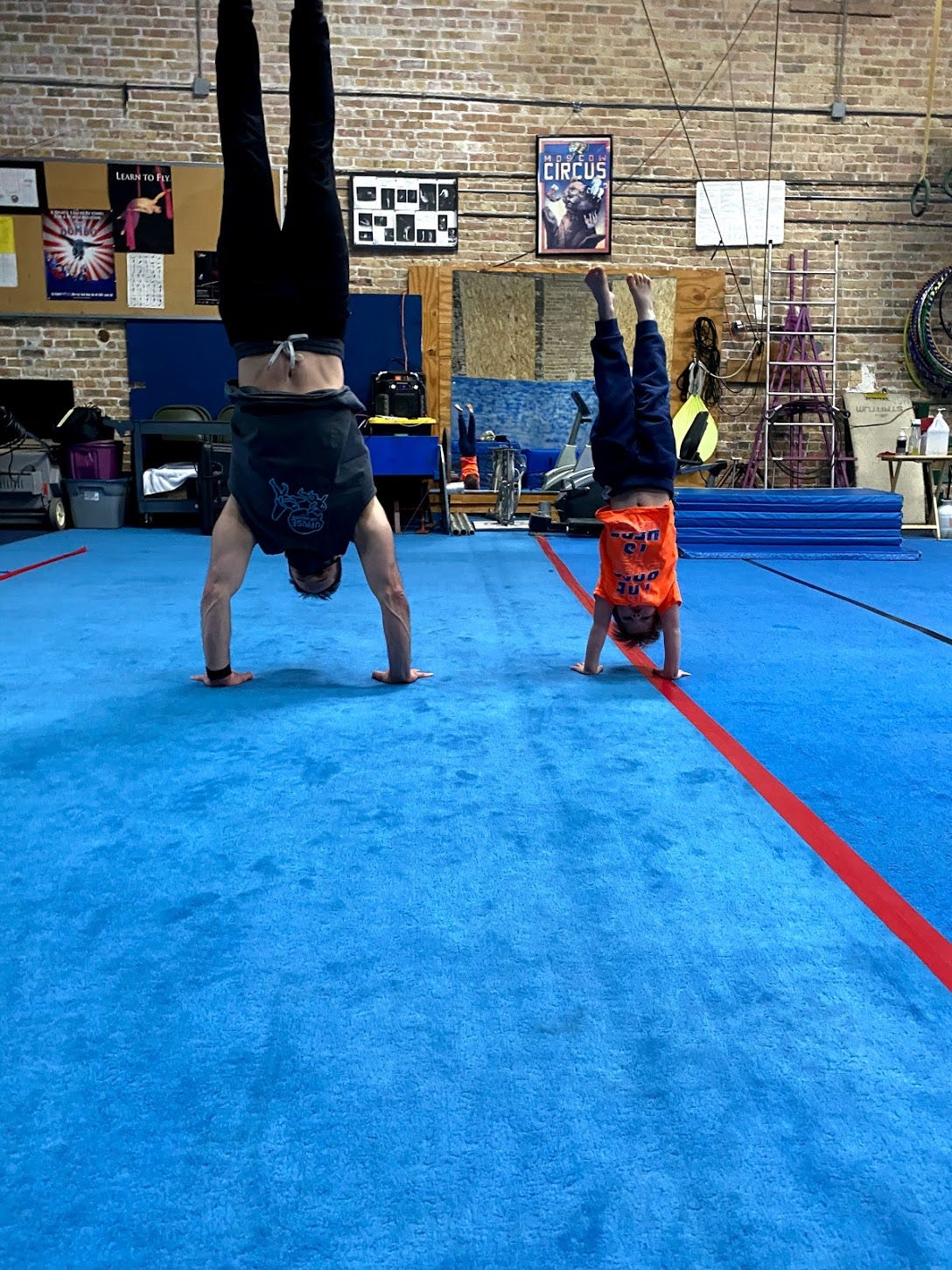👑Power of Our Tribes👑
🔥Welcome to volume #0045!🔥
I’m Christian Champ. This is ☯️The Middle Way Newsletter ☯️. It is a place where I write, explore, share, and invite you along for the journey.
👑Power of Our Tribes👑
When I first moved to Chicago, I felt like a fish out of water. My college community was gone, and everything started over. There was so much to explore, but I needed my scaffolding. Like a rudderless ship, life bounced around until slowly, I found my people. First came the work tribe, and then the friend tribe grew.
One of the most important things we do is find the others. When we get around the right people and find our tribe, it propels us. We get 1+1 = 5. Good tribes create the energy, space, and relationships for a life well-lived. The tribe provides rocket fuel for where we want to go and buffers us when life falls apart.
Linking up with the wrong tribe leads us down the wrong alley. We saw the power of following the wrong tribe members this week. The wrong direction leads to rocket fuel blowing up in our faces.
Our tribe shapes us, and we shape the tribe. Just like we build the tools and the tools build us, our tribes act in the same way. Dunbar’s number gives us around 150 people to be part of our tribes. That bucket fills up quickly with family, work, and neighbors. We need to make it count and find the right people for our tribes.
Do the people in your circles serve your best interest? Are they acting in service of something you both believe? Do we show up and help our tribes? Do we bring out the best in others in our tribes?
We all experience the pull of groups, and we all participate in creating that pull for others. That is why we need to find the others and be there for our tribe members. Our tribe supports us, nourishes us, and enables us to live our best lives.
We needed our tribes more than ever in 2020 and that trend continues into this year.
📓Articles to Read📓
Peter Limberg writes of the Trickle-Down Galaxy Brain
Speaking of tribes, Peter writes about two GOATs when it comes to creating tribes, in Dale Carnegie and Ralph Smedley. As a long time Toastmaster and taking Dale Carnergie’s class as a high schooler (where I was at least 10 years younger than anyone else in the course), both of these gentlemen and their creations, made a big difference in my life. I actually wrote my college entrance essay on the power of How to Win Friends and Influence People.
If you want to meet some great people, join a Toastmaster tribe, and immerse yourself in some Carnegie.
Peter offers this about Dale and Ralph.
Maybe it is corny to listen to Carnegie, and become socially fluent, as social assholes like Steve Jobs get all the glory. Carnegie was an absolute sensation during his day though, and people flocked to see him so he could teach them the basics. He was a businessman as well, and he was not shy about making money.
While his business hustle was admirable, that is not the aspect I admire about him most. I admire his ability to teach navigation of the complex realm of social dynamics, which he did through an ecology of basic principles, and his teachings have consistently led to people getting better at relationships.
I admire Smedley because he helped me and many others become better public speakers, by basically creating a public speaking “psychotechnology,” which is now replicable via Toastmaster clubs the world over. If you stick with their system, you will become a better public speaker.
In The Story of Toastmasters, Smedley wrote that he was getting pressure to make Toastmasters a for-profit company, and he could have made a lot of money from doing so, but opted to make it a non-profit. In his own words:
There have been occasions when someone recognized the money-making possibilities in our work and started talking about capitalizing on it, but an explanation of the facts was enough to stop him. I have been pronounced various kinds of fool for not making a fortune out of it, but my reply has been that I would rather be rich in friendship than in money.
Vitalik Buterin (of Etherum fame) on Concave and Convex Dispositions (hat tip to subscriber Paul for sending this one and seeing it as another way to think about the Middle Way)
Concave thinking is the Middle Way (mixing views vs. taking an extreme in either direction.
Someone with a concave disposition might say things like this:
"Going to the extremes has never been good for us; you can die from being too hot or too cold. We need to find the balance between the two that's just right"
"If you implement only a little bit of a philosophy, you can pick the parts that have the highest benefits and the lowest risks, and avoid the parts that are more risky. But if you insist on going to the extremes, once you've picked the low-hanging fruit, you'll be forced to look harder and harder for smaller and smaller benefits, and before you know it the growing risks might outweigh the benefit of the whole thing"
"The opposing philosophy probably has some value too, so we should try to combine the best parts of both, and definitely avoid doing things that the opposing philosophy considers to be extremely terrible, just in case"
Someone with a convex disposition might say things like this:
"We need to focus. Otherwise, we risk becoming a jack of all trades, master of none"
"If we take even a few steps down that road, it will become slippery slope and only pull us down ever further until we end up in the abyss. There's only two stable positions on the slope: either we're down there, or we stay up here"
"If you give an inch, they will take a mile"
"Whether we're following this philosophy or that philosophy, we should be following somephilosophy and just stick to it. Making a wishy-washy mix of everything doesn't make sense"
But he notes that sometimes you do need to take a hard line
But it's worth noting that even on the meta-level, concave temperament is something that one must take great care to avoid being extreme about. There are certainly situations where policy A gives a good result, policy B gives a worse but still tolerable result, but a half-hearted mix between the two is worst of all. The coronavirus is perhaps an excellent example: a 100% effective travel ban is far more than twice as useful as a 50% effective travel ban. An effective lockdown that pushes the R0 of the virus down below 1 can eradicate the virus, leading to a quick recovery, but a half-hearted lockdown that only pushes the R0 down to 1.3 leads to months of agony with little to show for it. This is one possible explanation for why many Western countries responded poorly to it: political systems designed for compromise risk falling into middle approaches even when they are not effective.
🎙️ Listen / Watch 📺
Alan Watts on the Myopic View of the World
Zach Lowe Podcast featuring Richard Jefferson offers some great ideas on learning, growth, and needing to be pushed.
Richard Jefferson talks about the importance of practice and being pushed to be what we aren’t. We can get stuck thinking we are one thing, and unless we get proaded or pushed, we fail to evolve. Dirk Nowitzki was a great three point shooter, but needed Avery Johnson (as his coach) to punch, push, push and push and demand he becomes like Tim Duncan. This made Dirk one of the best players in the game. A post game “was not who Dirk was” and yet that becoming changed the course of his career.
When do we need to stop pushing back against becoming something new and changing the story of who we are? It reminds me of how certain people throughout our lives get boxed into the person who doesn’t change, doesn’t listen, can’t present, can’t talk to investors, and yet, we all can change. We just need folks in our tribe to push and pull us to get out of our lanes.
Chris Paul happened to the Phoenix Suns. Anywhere he goes he makes everyone else better. His tenacity, knowledge, and attitude change teams.
You need to be pushed outside of your comfort zone. We start to think we just do x and need to get pushed to add y.
Avery Johnson, as coach of the Mavericks, forced Dirk Nowitzki to become Tim Duncan. This was in the face of pushback from Dirk, a superstar at the time, who didn’t believe he was a post player. Fast forward a couple of seasons and they win a championship because Dirk mastered something that he “wasn’t”.
Full Quote HereRichard started out shooting no three-pointers. Then his coach, Larry Drew, said shoot one three-pointer a game, if he made it, he shot another one. This small step and practice bloomed into making RJ an NBA champion and having a long successful career.
First comes trying, then comes confidence, and finally, you start to master it.
This week’s letter was created listening to Louis the Child’s Playground Radio, which including their favorite tracks of 2020.
📚 Books to Read or Listen to📚
Breath by James Nestor (Goodreads)
James wrote a gem of a book that breaks down the importance of the breath and ways that we can improve how we breathe.
TLDR: Our ability to breathe properly directly correlates to our health and here are some ways to breathe better.
Don’t mouth breathe!
“The health benefits of nose breathing are undeniable,” he told me. One of the many benefits is that the sinuses release a huge boost of nitric oxide, a molecule that plays an essential role in increasing circulation and delivering oxygen into cells. Immune function, weight, circulation, mood, and sexual function can all be heavily influenced by the amount of nitric oxide in the body. (The popular erectile dysfunction drug sildenafil, known by the commercial name Viagra, works by releasing nitric oxide into the bloodstream, which opens the capillaries in the genitals and elsewhere.) Nasal breathing alone can boost nitric oxide sixfold, which is one of the reasons we can absorb about 18 percent more oxygen than by just breathing through the mouth.
The book breaks down multiple different breathing techniques that you can try… breaths of fire, slow breathing, box breathing, Whim Hoff, holotropic
Again, it comes down to will. The breathholding that occurs in sleep and constant partial attention is unconscious—it’s something that happens to our bodies, something that’s out of our control. The breathholding practiced by the ancients and revivalists is conscious. These are practices we will ourselves to do.
💣Words of Wisdom💣
Becoming Wise - Krista Tippett
I have yet to meet a wise person who doesn’t know how to find some joy even in the midst of what is hard, and to smile and laugh easily, including at oneself. A sense of humor is high on my list of virtues, in interplay with humility and compassion and a capacity to change when that is the right thing to do.
The Order of Time - Carlo Rovelli
But it isn’t absence that causes sorrow. It is affection and love. Without affection, without love, such absences would cause us no pain. For this reason, even the pain caused by absence is, in the end, something good and even beautiful, because it feeds on that which gives meaning to life.
Trillion Dollar Coach - Eric Schmidt, Jonathan Rosenberg, Alan Eagle
Repetition doesn’t spoil the prayer. In fact, a 2002 study from Southern Methodist University shows that knowing what to share and communicate and with whom is an important part of a manager’s job. Done right, this “knowledge commonality” helps the team perform better and is well worth the time it requires.
Transcend - Scott Barry Kaufman
Critically, the effect of moving out of poverty was strongest for behavioral symptoms such as aggression and hostility.
Material progress doesn’t make us happier. If it did, the ancients must have been a miserable bunch. Instead, we compete for status, an older, zero-sum game. We don’t want things, we want to be things.* A rational person recounts their blessings and rejects society’s games.
Nlp - Steve Andreas and Charles Faulkner
Produce positive feelings in others by being a great example of the state of mind you’d like others to feel about you and encouraging it with your actions.
Generous and authentic leadership will always defeat the selfish efforts of someone doing it just because she can.
I’ve learned a lot over the past ten years about what it means to be the boss of people. In most cases being a good boss means hiring talented people and then getting out of their way. In other cases, to get the best work out of people you may have to pretend you are not their boss and let them treat someone else like the boss, and then that person whispers to you behind a fake wall and you tell them what to tell the first person. Contrary to what I believed as a little girl, being the boss almost never involves marching around, waving your arms, and chanting, “I am the boss! I am the boss!”
🙏Thanks for reading🙏
How can you help contribute more to your tribes in these challenging times?
Any thoughts or comments, please share!
Namaste,
Christian






